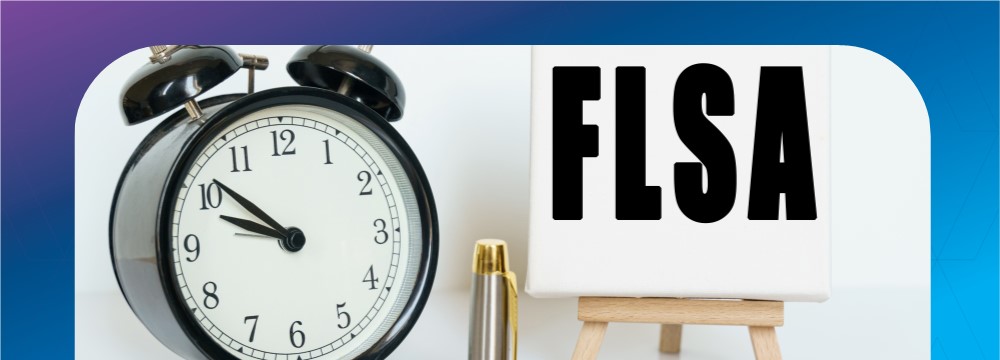Supreme Court Rejects Higher Evidence Standards for the FLSA
January 17, 2025 – Legal Alerts
The U.S. Supreme Court unanimously held that higher evidentiary standards do not apply to overtime exemption classification disputes under the Fair Labor Standards Act (FLSA).
In July of 2023, the Fourth Circuit required an employer to prove by clear and convincing evidence that its workers fell within the FLSA’s outside sales exemption. The U.S. Supreme Court reversed this decision, holding that the default preponderance of the evidence standard applies.
There are various categories of exempt workers under the FLSA (“exempt” meaning certain requirements of the Act, such as minimum wage and/or overtime, do not apply). In order for the outside sales exemption to apply, an employee’s primary duty must involve making sales or obtaining orders and contracts for services, and the employee must be “customarily and regularly engaged away from the employer’s place or places of business in performing such primary duty.” Id.
In writing the Court’s unanimous decision, Justice Brett Kavanaugh clarified that the preponderance of the evidence standard applies in civil litigation unless a higher standard is required by: (1) statute; (2) the Constitution; or (3) Supreme Court precedent in cases where the government pursues drastic action against a person. Because the FLSA does not fall within any of those categories, the preponderance of the evidence standard applies.
Justice Kavanaugh also referenced Title VII cases to support this conclusion, noting that “[i]f clear and convincing evidence is not required in Title VII cases, it is hard to see why it would be required in [FLSA] cases.”
With the Supreme Court’s January 2025 ruling, the default preponderance of evidence will apply in nearly all FLSA cases.
What Employers Need to Know
Employers will not be required to meet the higher clear and convincing evidence standard in FLSA disputes. Instead, employers will only be required to show that, under the preponderance of the evidence standard, their position is more likely than not to be true. This will ease the employer’s burden in defending against FLSA claims.
To avoid potential legal challenges, employers should review their current practices to ensure they comply with the FLSA.
If you have questions regarding this latest development, please reach out to your Dinsmore labor and employment attorney.


